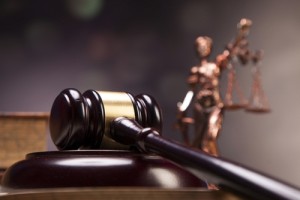A South Dakota judge ruled this week that health care providers are subject to negligent credentialling lawsuits when they fail to properly  credential doctors.
credential doctors.
Judge Bruce Anderson made another important ruling: that even people on the credentialling committee may be subject to suit. This has not real practical implications because a hospitals will stand behind the committee. But it is never fun to be sued personally, even if you have no real exposure.
The judge also found that hospitals cannot claim peer review privileges as an absolute defense against discovery requests. This is very pro-patient safety and could be a ruling that could start to erode the absolute defense from discovery; that has long been the case in Maryland and in most states. The judge’s logic: hospitals may have an obligation, in some cases, to the public that outweighs peer-review confidentiality. Makes a lot of sense to me.
Negligent Credentialing
The old school view was a hospital was just a place where independent contractor doctors treated patients, so hospitals would have immunity from negligent credentialling lawsuits. But that flew in the face of what the public needed to be able to expect from a hospital. This has lead to the doctrine of negligent credentialling. So now in a slight majority of states, hospitals must be reasonable in the selection of its nurses, doctors, agents, and employees. Health care facilities also must conduct a reasonable investigation of the credentials of its health care providers, which requires it to obtain and evaluate pertinent information regarding its team. The information hospitals should want to know is whether the doctor has been disciplined by licensing authorities, the frequency and reasons for the discipline, and the merits and significance of those claims. The credentialling committee should also investigate malpractice claims against the doctors.
Peer Review Confidentiality
The argument for peer review confidentiality has always been that committee members, including physicians, who are usually loathed to criticize other doctors in any way possible, could come back on that doctor in a lawsuit. Therefore, it would not allow the freedom to express themselves if they thought their opinions and conclusion were not confidential.
I agree that doctors would legitimately have a fear of damage to personal (and business) relationships. Also, fear of getting dragged into a lawsuit, if there was an open season on peer review proceedings. There would be lawsuits and malpractice actions based on records used during the proceedings. But there ought to be some sort of balance test of confidentiality. Also, some sort of balance test on the patient and public interest. I think a big part of the problem is the fantasy world that there are peer review committees that pure colors this discussion when the real world tells us otherwise. It is ridiculous to give these otherworldly protections to what seems to be a corrupt process, if you do a little digging.
This South Dakota judge is saying that maybe we should not be elevating peer reviews the way we have. Other privileges, the judge noted, are not absolute. Why should peer reviews be so elevated in the hierarchy of privileges?
 Lawsuit Information Center
Lawsuit Information Center

